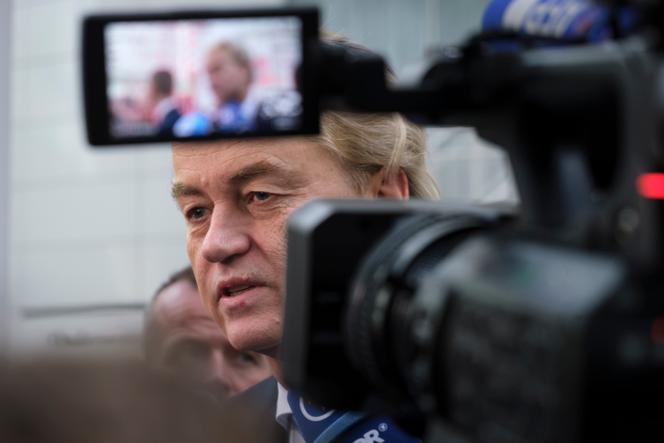


The political situation in the Netherlands is becoming increasingly tense, as four parties, including Geert Wilders' far-right formation, which came out on top in the November 2023 elections, are still trying to agree on a possible government agenda. On Sunday, April 21, the leader of the Party for Freedom (PVV) announced on the X social media platform that he was filing a complaint against his main opponent, Frans Timmermans, former first vice president of the European Commission.
At a congress of the Socialist-Green coalition he heads, Timmermans declared in Apeldoorn on Saturday that he and his party would "leave no stone unturned to prevent Wilders coming to power in this country." An initial version of the text circulated stated that the left would "not allow" Wilders to come to power. Wilders saw this as an incitement to violence and, in a second message, invited citizens to lodge a complaint as well. He denounced "very dangerous leftist excitement" and alluded to the 2002 murder of populist Pim Fortuyn by an environmental activist.
In his response published on Sunday, Timmermans firmly denied advocating violence. "My actions have always gone through parliamentary channels," he explained. "Wilders always acts in this way when he is criticized." Often portrayed as uncomfortable in his role as Wilders' main rival, the Social Democrat leader had visibly decided to go back on the offensive on Saturday, denouncing the far-right leader's "permanent incontinence" on social media and portraying him as a "self-declared admirer" of Russian President Vladimir Putin.
This sudden fever pitch comes five months after the election and ahead of a week billed as potentially decisive for the formation of a possible right-wing coalition. If such an alliance does not emerge, Timmermans, whose Socialist-Green formation came second in the election, would take over. After rejecting this possibility prior to the vote, he recently opened the door to a possible alliance with the People's Party for Freedom and Democracy (VVD), the liberal party of Prime Minister Mark Rutte, who is scheduled to leave office after the installation of the next cabinet.
Wilders is currently engaged in difficult negotiations with three parties, including the VVD, under the guidance of a duo of "informers." This is the third attempt to align the positions of his party with the liberals, as well as the Farmer-Citizen Movement (BBB) and the New Social Contract (NSC, center right).
Wilders has renounced the post of prime minister, which in theory should have fallen to him, and the other leaders have indicated that they too will not be part of the future ministerial team if it sees the light of day. Yet there are still many differences of opinion between these potential partners. In a sign of the prevailing tension, the leader of the PVV has twice walked away from the negotiating table in recent days, after the VVD, the current government's largest party, approved a plan for the national distribution of asylum seekers that the far right had rejected.
You have 34.91% of this article left to read. The rest is for subscribers only.
